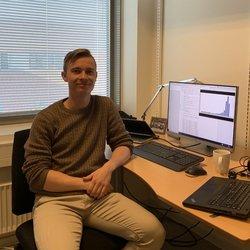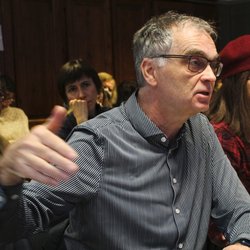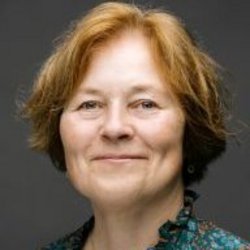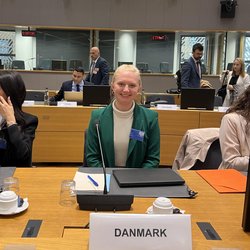I en tid med stigende usikkerhed er Europas fremtid og europæisk integration blevet et stadigt mere essentielt spørgsmål. I øjeblikket diskuterer europæerne, hvordan man skal håndtere en lang række af udfordringer; Brexit, eftervirkningerne af finanskrisen, flygtningekrisen, udfordringer med populisme, grænsespørgsmål, stigende besparelser og virkningerne af klima-ændringerne. Kandidatuddannelsen i europæiske studier ved Aarhus Universitet udstyrer de studerende med værktøjer og teorier til at analysere den aktuelle situation i Europa, herunder de mange udfordringer som europæerne står overfor og mulighederne for tværnationale løsninger. På Europa studier fokuserer vi på de kulturelle, sociale og politiske processer, der er med til at skabe Europa; vi undersøger EU institutionernes karakter og rolle; vi ser på Europa ud fra et globalt perspektiv - og ikke mindst; stiller vi spørgsmålet om, hvem "europæerne" virkelig er.
Med en kandidatgrad i Europa studier er du kvalificeret til at analysere og arbejde i europæiske institutioner, nationale statsadministrationer, i internationale organisationer og i multinationale selskaber. Lærerstaben ved Europa studier har bred ekspertise inden for EU's politikker og institutioner, europæisk politik, identitetsopbygning, køn, interkulturelle forhold, grænsespørgsmål og migrations-, kulturarvs- og kollektive erindringsspørgsmål.

Academic Background:
I have a BA and MA in History and Social Science from Aarhus University. During my studies, I became increasingly interesting in the field of digital humanities and the ways that computational and quantitative methods can aid traditional humanities research, so as a way to get out of the dusty archives, I decided to learn coding on the side. This, combined with my other long-standing interest in far-right online communities and their use of history, eventually culminated in my current PhD project.
My research in a nutshell:
I research memory and the use of history in far-right online communities. In my PhD project, I specifically look at a chat forum called 4chan’s /pol/, where I try to understand how users engage with and utilize history in their processes of identity and community formation. Partly due to the nature and magnitude of my empirical data, I rely on a mix of traditional close reading methods as well as more data-intensive methods such as statistical analysis, machine learning, algorithmic topic modelling, and other techniques from the fields of digital humanities and natural language processing. This approach allows me a multifocal view into an otherwise chaotic, disordered, and amorphous online far-right community.
Who is your favorite ‘Global Thinker’ and why?
I try not to have ‘favorites’ of too many things, since people, tastes and opinions necessarily change over time, and I think it’s important to always have a dynamic and evolving view of the world. However, for good and bad, I can’t help but be inspired by technologists and entrepreneurs like the late Aaron Swartz (co-developer of Reddit) and to some extent Christopher Poole (creator of 4chan) for their ideas about the Internet as an open information system, more or less detached from government and moral policing, where a true global democratic populace can ideally come together, collaborate, share ideas, be creative, and audit the powers that be. While such cyber-utopianist convictions might not stand up well against the reality of today’s Internet, I do still think that such basic debates around privacy, anonymity, freedom of expression, and access to information are important, as we undoubtedly continue to drift towards ever-increasing global connectivity.

Academic Background:
I have a master’s degree in political science and Czech studies from 1989 and finished my PhD on Czech nineteenth century history in 1994, all at Aarhus University.
My research in a nutshell:
Over the years, I have oscillated between three key research interests: nineteenth century and early twentieth history with a special focus on nationalism and national identity in a multinational state (concretely: Czechs in the Habsburg Empire; interwar Czechoslovakia); dissidence, grey zones, culture, and law in Communist Czechoslovakia; and last but not necessarily least: ideas of Europe and Europeanness with a special focus on mental mappings of and discourses about ‘Central’ and ‘Eastern’ Europe, including the ways in which dubious West-East dichotomies permeate nationalism theory. Borders (discursive and political) also have my keen interest.
What is your favorite place in Europe and why?
I never tire of Prague. It is a beautiful city where I feel very much at home while also constantly discovering new and surprising places. I have many friends there, Prague is great for walking, a joy for the eye, and the beer is excellent!





Academic Background:
I have my BSc in European Studies from the University of Southern Denmark in Sønderborg and my MSc in International Relations with a specialisation in EU Studies from Aalborg University.
My research in a nutshell:
My PhD project explores how emotional catalysts shape EU foreign policy rhetoric, and ultimately decision-making, toward international geopolitical actors, including Russia, China, the ASEAN countries, and the U.S. I utilise quantitative natural language processing methods, along with historical analyses and interviews, to examine patterns between the EU’s emotional rhetoric and its geopolitical policy decisions.
My broader research interests entail power distribution changes within the international system: specifically, the ways in which we can study power as something more than what the traditional IR paradigms tell us decision-making must be based on. In other words, I am interested in how humanistic paradigms offer a new approach to understanding the international system, especially with our current changing international order. Therefore, I have enjoyed working with a range of topics in addition to emotions and foreign policy, such as non-state armed actors, European border region disputes, and even the geo-economics of critical raw materials.
What is your favorite book?
I am an avid reader so this is no easy choice, but whenever someone asks me for a book recommendation, I always recommend From the Corner of His Eye by Dean Koontz. Koontz is hands-down my favourite author, who writes suspense thrillers: he has a knack for never letting you figure out how the story is going to end. But what is really special about many of his books is that the true substance of the story is not about the plot, but rather about the underlying message, which often deals with the overlap between good and evil, and how not everything is always so black and white. He also lives and writes from Southern California, where I was born and raised, and because he often includes real places as his settings and that unexplainable SoCal ‘vibe’, I also get the added benefit of nostalgia when I read his books.

Academic Background:
Anthropologist, mag.scient, from Copenhagen University, dr.phil from Aarhus University.
My research in a nutshell:
I am conceptually inspired by the French sociologist, Pierre Bourdieu (about whom I have written two books and given a gazillion lectures). I wrote my doctoral dissertation on the EU's language and minority policies during the 1980s and 1990s with the UK as a case and I still consider the UK my main field in Europe. I currently do research on the internationalization of higher education with Denmark as a case. I also do research on the Eurovision Song Contest as a site for negotiating local, national, and European identities and belonging and a site to challenge narratives and performances of self and other in Europe. And I know tons of weird stuff about Europe, past and present.
What is your favorite word in Chinese/Japanese/Hindi/(Brazilian) Portuguese/Russian or any of the official EU languages and why?
My favourite word is the Danish word: "Nå". Danish is known to be a difficult language, so I like the fact that one can be almost fluent in Danish by mastering this one word. You can express your interest in other people, you can threaten them, tell them to calm down, show surprise, tell them that something/someone is cute, show doubt, tell someone that they are right or that you really don't care. In fact, "Nå" has 12 totally different meanings and can get you very far!